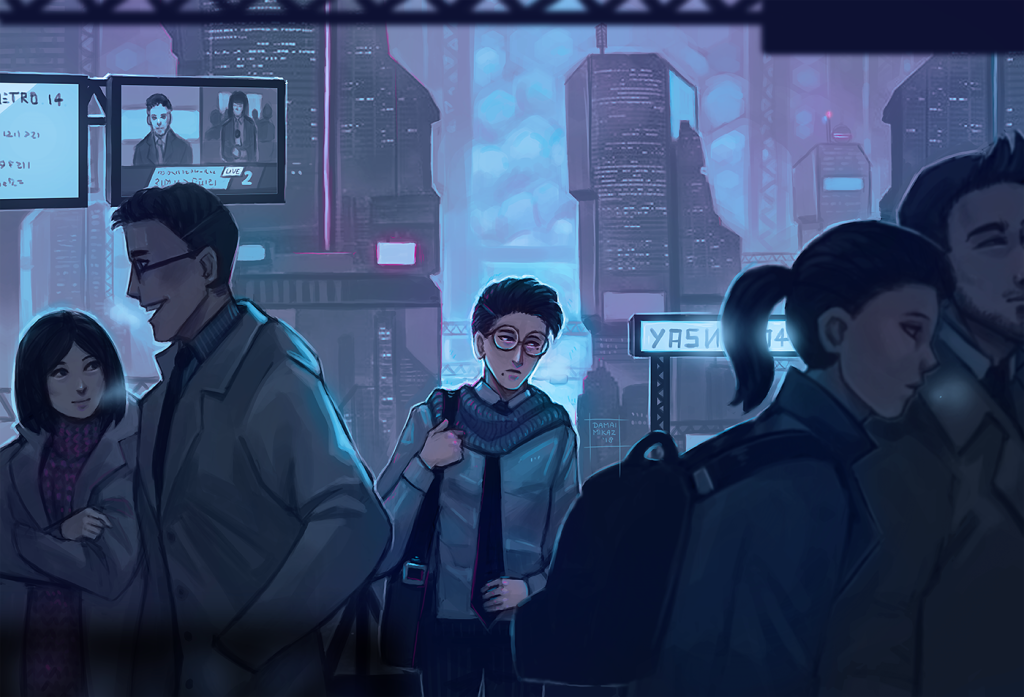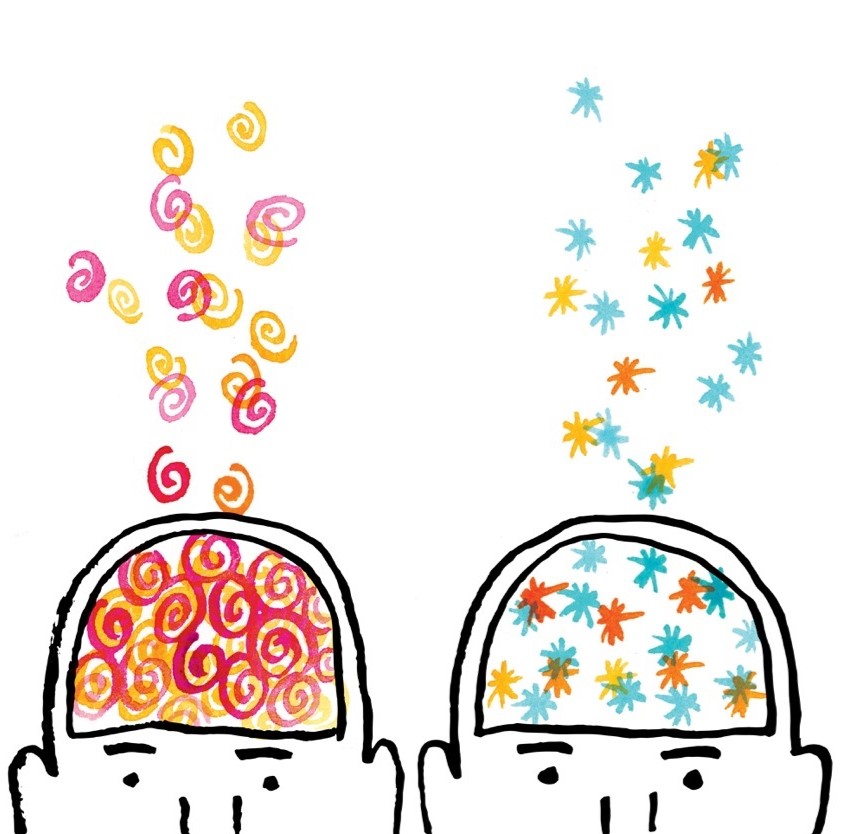The following post discusses abuse and suicide and may be triggering for some. Please read on with caution.
Having only discovered that I am autistic at the age of 58, my learning curve has been rather steep. I’ve been doing a lot of reading, a lot of watching YouTube channels hosted by autistic adults, and participating in discussions in adult autism Facebook groups. I have also found that most rare and precious of things: a therapist who understands autism. Beyond that, support for autistic adults is rather thin on the ground.
Based on the above, please do not take anything I say below to be expert advice, or medical or psychiatric advice of any type. I don’t speak for everyone who is on the autism spectrum, nor would I want to. The opinions below are strictly based on my observations. So, here goes…
Having spent quite a bit of time talking to adults with autism on various Facebook groups, I have noticed three predominant themes. 1) Not being good at making and/or keeping friends. 2) Family members no longer speaking to them. 3) Not being liked at work, and/or being fired due to personality conflicts. I can relate to all these things to a certain degree.
In a blog post I wrote entitled I Should Be Smiling, I discussed how it’s not unusual for autistic people’s faces and body language to not accurately reflect their actual mood. This can cause a great deal of misunderstandings. I also discussed the concept of mirror neurons, which, very basically, is the ability to read a room. If you walk into a room with a blank expression, it apparently rattles neurotypicals, because they can’t “read” you. If they can’t read you, their instinct is to think you are weird. If they think you are weird, they prefer to avoid you.
Another thing working against the neurodivergent is the fact that many neurotypicals, at least here in the US, seem to view extroversion as a quality that is much more acceptable than introversion, and many, but not all of us, are introverted. It’s also not uncommon for many of us to be literal thinkers, so we don’t always get jokes, and we tend to be unskilled at reading between the lines. If neurotypicals said what they meant and meant what they said, the world would be much more comprehensible for neurodivergent people. I go into more detail about this in What My Autism Diagnosis Taught Me About Communication.
Throughout life, I’ve been constantly told that I need to “put myself out there” more. I should try harder. But if every single time you’ve made that effort you wound up feeling worse than you did when you started, would you consider this a viable solution? Attending more parties is not the solution. Exhausting myself by trying to act “normal” isn’t sustainable. And frankly, I do like being alone much of the time. Just not all of the time. So what to do?
The bottom line is that those of us on the autism spectrum are misunderstood more often than not. That’s isolating. It’s painful and confusing. Now, add on to that the ever-present societal message that since we are the common denominator, all of this isolation and misunderstanding must be our fault. That’s the perfect cocktail for depression and feelings of hopelessness. Could this play into the fact that our suicide rates are as much as 8 times higher than the rest of the population? It seems like a logical conclusion to draw.
Equally concerning: our life expectancy is as much as 20 years less than the rest of the population, most likely due to stress-related illness and suicide. That shocking statistic would lead to immediate action in any other test group. Definitive changes need to be made, and soon.
Personally, I’m convinced that I also have Rejection Sensitive Dysphoria. This is not a condition that you’ll find on a DSM-5, so a diagnosis isn’t really available, but it’s getting more and more attention. Basically, it means that a person is hypersensitive to rejection or the possibility thereof. It can even get to the point where you start to believe that you are being rejected more often than you actually are. (Believe me, the entire world isn’t out to get you. They have much bigger fish to fry.)
I have a theory that it would be quite hard for the average autistic person to not suffer from Rejection Sensitive Dysphoria, given the fact that we are so often bullied, and we’ve been rejected time after time after time. A person can only take so much. Once you have been burned, you tend to react poorly to fire.
So, having said all that, do I have some solution to all this heartbreaking isolation and loneliness? Do I have some magic bullet that would allow the neurodivergent to stop wondering why people react to them the way they do? God, I wish I did. Truly, I do. But I can at least offer some perspective that I have found comforting.
My therapist recently reminded me of something I read in an amazing book entitled, Neurotribes: The Legacy of Autism and the Future of Neurodiversity. It wasn’t that long ago that autistic people were lumped in with schizophrenics, and were therefore dumped in lunatic asylums. We’ve all heard horror stories about what those asylums were like. And with all the screaming and fear and chaos and overcrowding and abuse, that would be the perfect environment to exacerbate autistic meltdowns. And those meltdowns would then be used as justification for us being in such places.
To get a small sense of what that must have been like, my therapist suggested that I visit the grounds of the abandoned Northern State Hopsital in Seedro-Woolley, Washington. It was basically an asylum that was no better than a dumping ground for “undesirables”. It operated from 1912 to 1973. It’s on about 100 acres of land, and at its height, it housed more than 1000 people.
A lot of atrocities were committed there. Most “inmates” (as they called them), once admitted, remained there for life, often sharing wards with the violently insane. 1487 patients are buried there. Many were cremated and their ashes were stored in empty food cans. I’ll be going into more detail about this in a future post. I do hope to visit this hospital some day, if only to bear witness.
What my therapist was telling me was that the way we were once treated was disgusting, unacceptable, and in many cases criminal. All such asylums have now been closed, once Reagan threw those patients out on the street to fend for themselves, but the beliefs that lurked behind our institutionalization are still alive and well. We are still marginalized, and most people and bureaucracies are currently making no effort whatsoever to understand or accommodate us.
Society has been stigmatizing us from the very start. The isolation remains. This must change.
But for now, I’m taking comfort in the knowledge that all of this rejection and isolation has a long and poisonous history, and it is not our fault. That’s a start. Maybe in another 100 years, society will finally catch up and understand that differences are not a reason for people to be shunned. Maybe by then, people will realize that it’s highly beneficial for all concerned to take a little extra effort to understand those of us who are different.
Maybe someday diversity will not be considered a dirty word by so many people. Maybe by then people will appreciate the many contributions that people on the spectrum have made. (I’ll be writing about that in a future post.)
I hope this post will give people who share the spectrum with me a little reassurance by way of an increased insight into why so many of us suffer from such ill treatment. I hope it will help them see that it is not our fault. And thanks to the internet, we increasingly have each other to remind ourselves that we’re good people, too.
We are here. We matter. And, at least online if nowhere else, we are not alone.
If you or someone you love is contemplating suicide, first of all, know that it’s never a good idea to make a permanent decision during an emotional meltdown. Having said that, please call 988 (or the crisis line equivalent in your country) for compassion, support, understanding, and referrals for more of the same.

Like the way my neurodivergent mind works? Then you’ll enjoy my book! It’s not about autism, but it’s full of unique insights on gratitude. http://amzn.to/2mlPVh5










